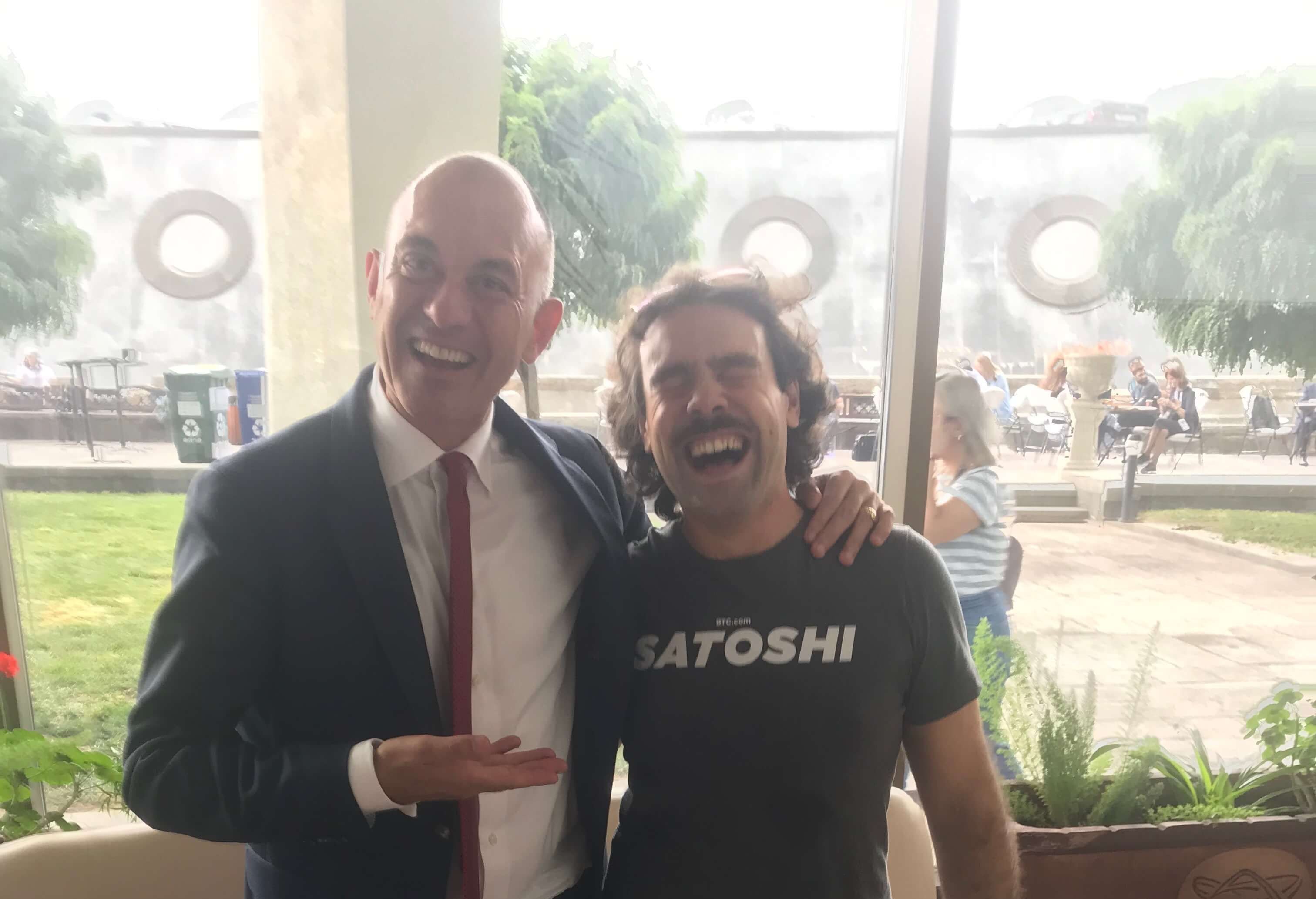

As I shared last week, earlir this month I attended WCIT 2019 – the biggest tech conference in Armenia.
During the conference I had the absolute pleasure to chat with Arthur Vayloyan, CEO of Bitcoin Suisse.
According to Wikipedia and Arthur himself, Bitcoin Suisse is a Swiss-regulated financial intermediary and pioneer in crypto-financial services based in Zug, where most of the Ethereum operation is also settled.
The company, established in 2013, provides services to the global institutional and private client base that includes brokerage and trading, storage solutions, collateralised lending and crypto-financial solutions.
“The timing wasn’t that great. The price was approaching $1,000 and then Mt.Gox crashed. It was one of those crashes where Bitcoin went down really fast. You really needed to be an enthusiasts to stay.”
Much like a great deal of investors I know, including the infamous Tim Draper and myself, Arthur got into BTC when the price was exploding into new all-time-highs.
Of course, because he truly understood the purpose of Bitcoin, not even the demise of Mt.Gox was able to swindle the company back.
With a committed community to the proper development of Bitcoin, the CEO believed the king of cryptocurrencies was here to stay, adding “technology develops regardless of any values attached to it” – a powerful message most high-level technologists share.
He says that after Vitalik Buterin launched Ethereum in 2016, with the implementation of the ERC20, that was a key turning point for the market. Out of nowhere, projects started to flourish due to the lack of complexity in creating and deploying smart contracts.
“People could create their own tokens on top of Ethereum, so even people with lack of technology understanding could come into the space.”
When we discussed the ICO boomed and some of the issues with projects like the DAO, Arthur referred the (huge) problem of governance. Also, even with Bitcoin maximalists being against these fund-raising mechanism, tokens flourished.
When I asked Arthur his thoughts on the possibility of the world being tokenised on a blockchain – with land deeds, financial products or even time, for instance – he did surprise me…
“It’s fair to say our brain is limited when attempting to predict based on the speed of tech acceleration. We don’t know what will be here within the next three hundred years, looking back at the past one hundred years.”
Arthur believes that within the next 50 years tokenisation may be over-taken by something brand new, like our brains being linked to the cloud. Instantaneous knowledge to be accessed in a blink of an eye.
To add to that, he says “maybe the concept of private and public will be completely redesigned” concluding the idea by stating the end goal of technology is to connect human beings by enhancing freedom. Of course, the conversation drifted for a few minutes, into the topic of AI and how biased algorithms may have a negative impact on decision-making.
“Social contracts are done by human beings, meaning, biases will always exist. Technology are tools and tools can be used both for the good and the bad”.
After the good stuff, I took the discussion to the current state of affairs.
My goal was to discuss a key point, that most people – including crypto-enthusiasts and experts – seem to misunderstand. The point of energy spending in proof-of-work consensus algorithms.
During WCIT 2019, many keynote speakers mentioned “blockchain”, stating that Bitcoin had failed because it wasted too much energy.
Of course what said folk forget to account for is what Arthur and I immediately agreed upon – the more energy a protocol spends, the more robust and secure it is.
“As far as I can see, the Bitcoin proof-of-work is using renewable energy and miners go to space where there is abundant energy. If said is not used, is just wasted.”
Arthur added that PoW is supposed to waste energy in order to make the system secure. Plus, if the price of energy continues to drop, the cost of mining and fees in general could drop.
We finished our discussion by talking consensus mechanics, like proof-of-stake, as Ethereum is soon making a move in that direction.
Arthur feels it’s important to have alternatives even though he’s happy Bitcoin developers prefer to take time, before making changes to the core protocol. Moving slow is a blessing sometimes, in order to avoid serious issues.
Safe trades!
Roger Ver, Bitcoin Cash founder and Bitcoin enthusiast
Jimmy Song, Bitcoin developer and lecturer
Mati Greenspan, senior market analyst at eToro
Stefan Schmidt, Unibright CTO
Arthur Vayolian, Bitcoin Suisse CEO
Roham Gharegozlou, CryptoKitties/NBA Top Shot Founder
Denver, Colorado, 24th February 2025, Chainwire
Denver, Colorado, 20th February 2025, Chainwire
Washington, D.C., 18th February 2025, Chainwire
Dubai, UAE, 27th January 2025, Chainwire
Those who enter the market at this time may be surprised to hear that Bitcoin…
George Town, Grand Cayman, 22nd November 2024, Chainwire